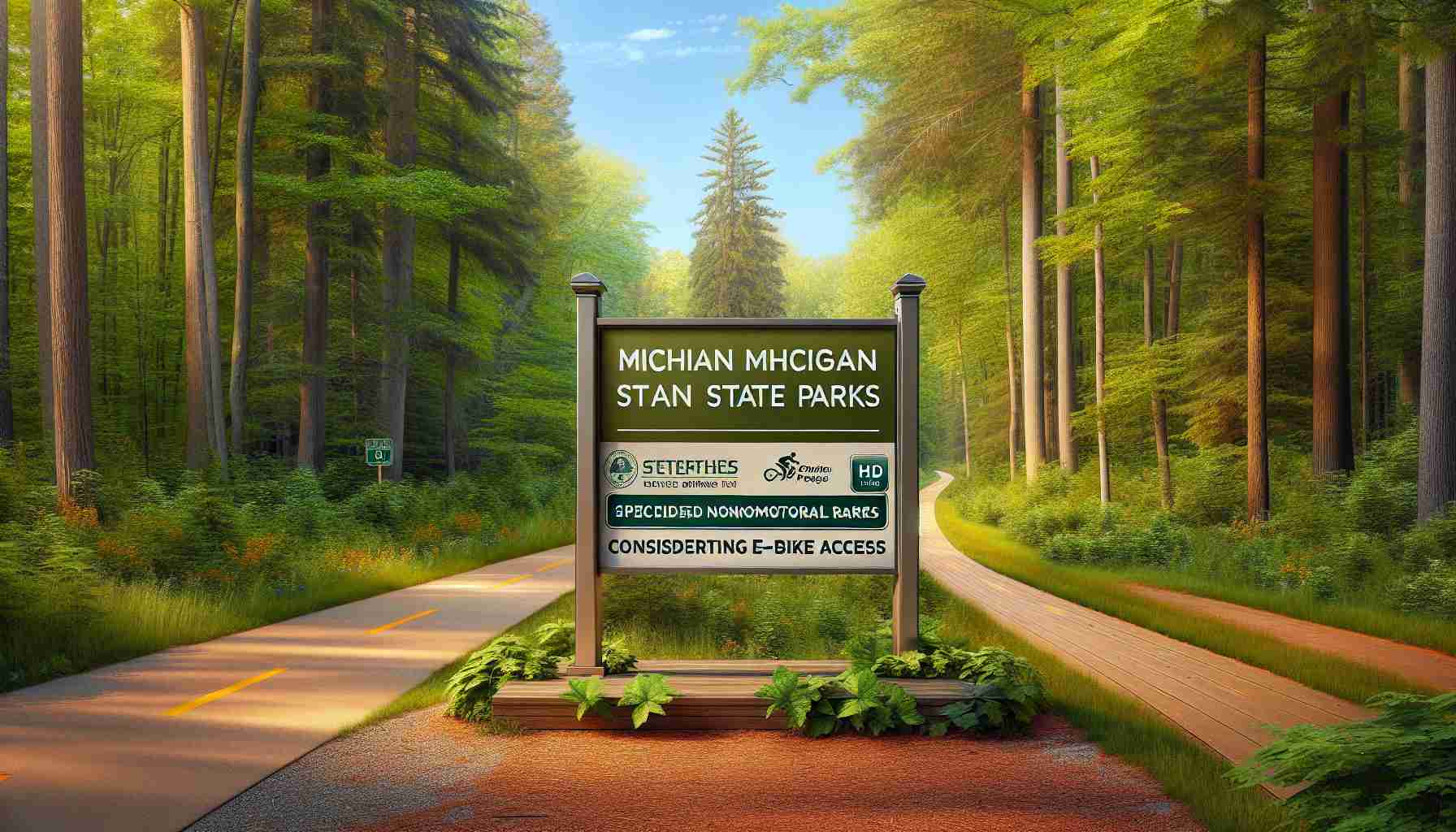Michigan state parks may soon allow class 1 and 2 e-bikes on their extensive network of nonmotorized trails, opening up new possibilities for outdoor enthusiasts. The proposed change by the Department of Natural Resources (DNR) would expand e-bike usage to include both paved and natural surface trails.
Currently, only pedal-assisted Class 1 e-bikes that can reach speeds of up to 20 miles per hour are allowed on improved surface trails such as gravel or asphalt. However, the new policy would extend this allowance to include natural surface trails as well, providing greater access to riders across the state.
Class 3 e-bikes, which have a maximum speed of 28 miles per hour, would remain prohibited on any state-managed land. This ensures the safety and integrity of the trails while still accommodating a wide range of e-bike users.
The DNR’s decision to consider this change was driven by a desire to offer more recreational options while safeguarding Michigan’s natural and cultural resources. Nicole Hunt, the regulatory unit manager with the DNR, emphasized the importance of balancing accessibility with environmental conservation.
To gather opinions and feedback from the public, the DNR has launched an online survey where individuals can share their thoughts on this proposed policy change. The survey aims to gather input from a diverse range of perspectives and experiences.
If approved, the DNR will place signage at trailheads to indicate the areas where e-bike use is allowed. This will help ensure that all trail users are aware of the new regulations.
This potential policy change not only promotes recreational opportunities but also recognizes the benefits of e-bikes for individuals with physical limitations, older adults, and anyone seeking assistance while cycling. Class 1 e-bikes, which require pedaling, offer a wonderful health benefit to riders.
As the popularity of e-bikes continues to grow nationwide, Michigan’s consideration of e-bike access on nonmotorized trails demonstrates the state’s commitment to staying current with evolving outdoor trends while prioritizing the needs of its residents.
The potential policy change allowing class 1 and 2 e-bikes on Michigan state parks’ nonmotorized trails reflects the growing popularity and demand for e-bikes in the outdoor recreation industry. E-bikes, also known as electric bicycles, have gained traction in recent years due to their ability to provide assistance to riders, making cycling more accessible and enjoyable for a wider range of people.
According to market forecasts, the e-bike industry is expected to experience significant growth in the coming years. Factors such as increasing consumer awareness of environmental sustainability, rising fuel prices, and the desire for alternative transportation options contribute to the projected expansion of the e-bike market. In fact, some studies estimate that the global e-bike market could reach a value of over $38 billion by 2025.
While the demand for e-bikes rises, there are specific challenges and concerns related to their integration into recreational areas such as state parks. One primary concern is the potential impact of e-bikes on the trails and the surrounding environment. The DNR’s decision to limit e-bike access to certain types of trails, such as improved and nonmotorized trails, is a step towards addressing this concern. By maintaining restrictions on class 3 e-bikes with higher speeds, the DNR aims to ensure the safety of both riders and the trails themselves.
The proposed policy change also raises questions about trail etiquette and the interaction between e-bike riders and other trail users, such as hikers and traditional cyclists. Illustrating the areas where e-bike use is permitted through signage will help educate all trail users and promote a harmonious sharing of the trails.
The inclusion of an online survey by the DNR demonstrates their commitment to gathering public input and considering various perspectives. This approach allows the voices of both e-bike enthusiasts and those who may have concerns about their presence on the trails to be heard. By collecting this feedback, the DNR can make informed decisions that strike a balance between accessibility and environmental conservation.
In conclusion, the potential policy change to allow class 1 and 2 e-bikes on Michigan state park trails reflects the dynamism of the e-bike industry and the state’s commitment to meeting the evolving needs and preferences of outdoor enthusiasts. By carefully managing access to nonmotorized trails and engaging with the public, the DNR aims to create a positive and sustainable environment for e-bike riders and other trail users alike.






















